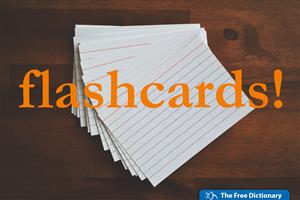Attributive Adjectives
What is an attributive adjective?
Attributive adjectives are adjectives that describe a characteristic (or attribute) of the noun or pronoun that they modify. They form part of a noun phrase, appearing immediately before (or sometimes after) the noun in a sentence.
Attributive vs. Predicative Adjectives
Attributive adjectives are usually considered in opposition to predicative adjectives, which follow the noun they modify and are connected to it by a linking verb.
Let’s first look at an example of an attributive adjective:
- “The black dog is barking.”
In this sentence, black is an attributive adjective. It is part of the noun phrase and is not connected to the noun dog by a linking verb.
Now let’s look at a predicative adjective:
- “The dog was black.”
In this sentence, black follows the noun dog, the noun that it modifies, and is connected to it by the linking verb was; it is a predicative adjective.
While most adjectives can occur either as attributive adjectives or predicative adjectives, there are certain adjectives that can only occur predicatively. Most, but not all, of these adjectives begin with the letter “a”:
- afloat
- afraid
- alike
- alone
- asleep
- awake
- aware
- upset
- well
For example:
- “The baby is asleep.” (correct)
- “The asleep baby is in the crib.” (incorrect)
- “The woman is well again.” (correct)
- “The well woman got out of bed.” (incorrect)
If you want to learn more about predicative adjectives, they are dealt with in greater detail in another section of this chapter.
Restrictive vs. Non-Restrictive Attributive Adjectives
Attributive adjectives can be either restrictive or non-restrictive. Restrictive adjectives help establish the identity of the noun or pronoun being modified, while non-restrictive adjectives simply help describe a noun that is already clearly identified. Note the difference between these two sentences:
- “She was emotional, and would avoid a sad film at all costs.”
- “Titanic was a sad film that no viewer could finish with dry eyes.”
In the first sentence, sad is restrictive: it tells us what kind of films she avoids. In the second sentence, sad is non-restrictive. We already know that Titanic is the film in question; the adjective sad simply serves to describe it further.
Prepositive adjectives: Before the noun
In simple sentences, attributive adjectives usually occur before the noun they modify, like in our first example, “The black dog is barking.” Adjectives in this position are known as prepositive or prenominal adjectives.
While most attributive adjectives can also occur as predicative adjectives after the noun, there are a number of specific adjectives which can only occur before the noun they modify. Some of these are: main, former, and mere.
- “The main idea is at the beginning of the paragraph.” (correct)
- “The idea at the beginning of the paragraph is main.” (incorrect)
Another adjective that only occurs attributively before the noun is the word utter, which provides heavy emphasis to the noun it modifies:
- “The dress was in utter ruin.” (correct)
- “The ruin was utter.” (incorrect)
Postpositive Adjectives: After the noun
It’s fairly common to find attributive adjectives defined as “adjectives that are placed before the noun or pronoun they modify.” However, it’s a bit more complicated than that. While attributive adjectives are generally found before the noun they modify, especially in simple sentences, there are also many cases in which they are placed immediately after the noun.
When this happens, they are called postpositive or postnominal adjectives. This often occurs in the following cases:
Terms derived from other languages
Postpositive adjective placement is very common in other languages, especially those derived from Latin. Postpositive placement in English occurs especially when using terms that were borrowed from French, a Latin-derived language.
English borrows many official, military, governmental, and administrative terms from other languages, and the adjectives have retained their postpositive position. For example:
- Legal and financial terms: body politic, court-martial, pound sterling, accounts payable, and heir apparent.
- Important positions of individuals: secretary-general, poet laureate, attorney general, princess royal, and professor emeritus.
In these types of terms, it’s conventional to pluralize the noun, not the adjective. For example:
- “One poet laureate.”
- “Two poets laureate.”
However, it is becoming more and more common for writers to treat these terms as compound nouns, pluralizing the adjective instead of the noun:
- “Two poet laureates.”
Traditional grammarians, though, consider the pluralization of the adjective to be incorrect.
After indefinite pronouns
Attributive adjectives almost always appear postpositively when they modify indefinite pronouns, such as someone, anyone, nobody, anyone, etc.
For example:
- “I wish I could find somebody perfect for the job.”
- “We can give these jeans to anybody tall.”
- “Is anyone talented at math here?”
After superlative attributive adjectives
Superlative adjectives are those that that compare three or more nouns to indicate which exhibits the highest degree of something, for example: the best, the worst, the tallest, the biggest, etc. When a superlative adjective is used attributively before a noun, we can use other attributive adjectives in a postpositive position for emphasis.
- “Let’s find the best hotel possible.”
- “She’s the worst singer present.”
In addition, the attributive adjective can sometimes come before the noun when paired with a superlative, as in:
- “We climbed the highest nearby mountain.”
Some adjectives ending in “-able/-ible”
Often, attributive adjectives ending in “-able/-ible” are placed in the postpositive position:
- “It’s the only time available.”
- “It’s the only option imaginable.”
Be careful though, because sometimes placing an adjective of this type in the prepositive or postpositive position can actually change the meaning of the sentence. For example:
- “She’s looking for a responsible man.”
In this sentence, responsible is in the prepositive position and seems to be a good characteristic. She is likely looking for a man who can be trusted. If we place the word responsible in the postpositive position, though, we have a very different meaning:
- “She’s looking for the man responsible.”
In this sentence, the word responsible takes on a different connotation, perhaps a negative one. She’s looking for the man who has done something; in most cases, the “something” is negative, such as a mistake or even a crime.
Not many adjectives change meaning so drastically based on their position in the sentence, but it is something to be aware of.
After expressions of measurement
Nouns are often used in combination with numbers and adjectives to give measurements of height, depth, age, etc. For example:
- “He’s only one year old.”
- “She’s five feet tall.”
- “The river is five miles long.”
- “The lake is one kilometer deep.”
A notable exception to this pattern is when we discuss weight. Instead, we use the verb weigh and a unit of measurement, or else just the unit of weight after the verb be. For example:
- “She weighs 120 pounds.” (correct)
- “She is 120 pounds.” (correct)
- “She is 120 pounds heavy.” (incorrect)
When the adjective modifies the object of factitive verbs
Factitive verbs are used to describe an action that results in a new condition or state of a person or thing. When an adjective modifies the direct object of a factitive verb, it is known as an object complement, and we place it in the postpositive position. For example:
- “He makes her happy.”
- “I find horror films terrifying.”
- “We painted the wall yellow.”
For poetic effect
Postpositive placement of attributive adjectives is frequently used for poetic effect, as it gives a somewhat archaic and literary twist to otherwise plain expressions. Take for example this excerpt from the poem “Happiness,” by Thomas Frederick Young:
- “Fair Happiness, I've courted thee,
- And used each cunning art and wile,
- Which lovers use with maidens coy,
- To win one tender glance or smile.”
In this example, the poet places the adjectives coy after the plural noun maidens, instead of before it, creating a stronger poetic effect.
We can see the same effect again in the poem “The Bouquet,” by Edward Smyth Jones:
- “A blossom pink,
- A blossom blue,
- Make all there is in love
- So true.”
The same phenomenon can also be seen in titles of books and films, which often use postpositive placement for its dramatic effect. Consider the titles of works such as Jupiter Ascending, The Matrix Reloaded, or The Brothers Karamazov, for example.
Get all volumes of The Farlex Grammar Book in paperback or eBook.

